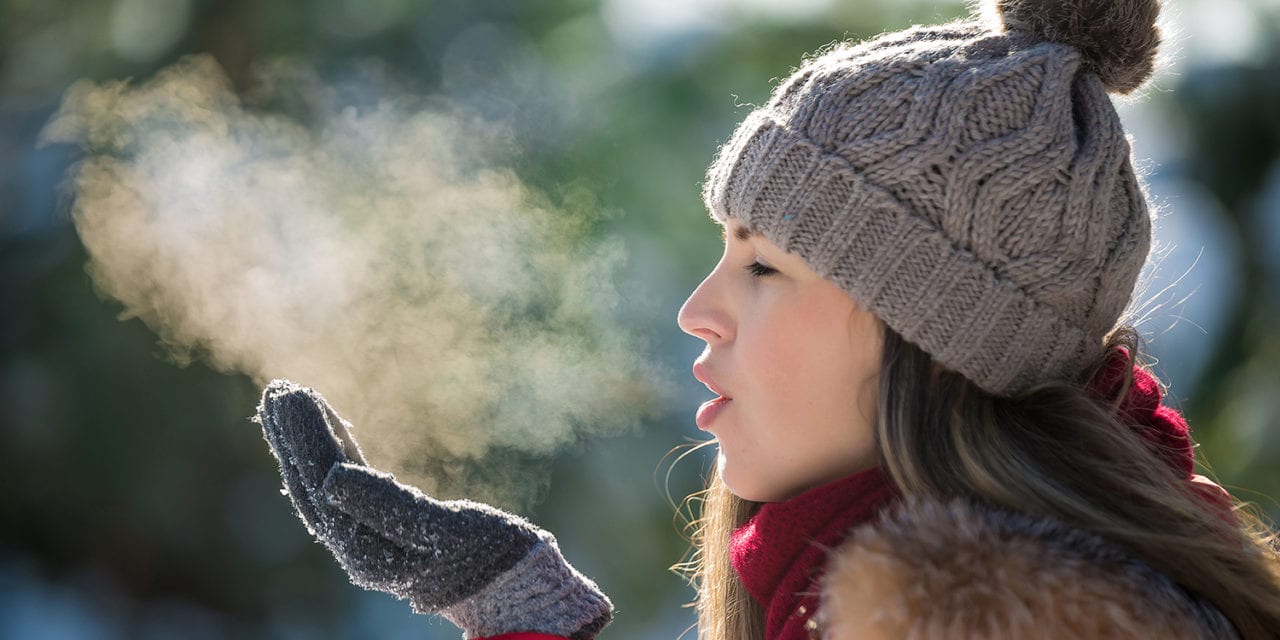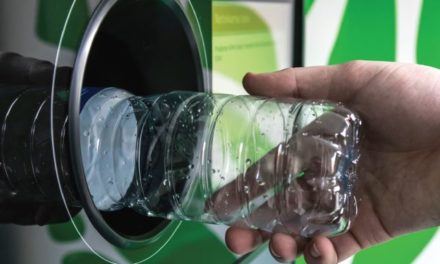The simple act of breathing during the winter months can cause you to lose a significant amount of water, making it vital at this time of year to stay on top of your hydration needs and those of your loved ones, says the International Bottled Water Association.
BY JILL CULORA
Most people think of dehydration as a hot-weather issue, and no doubt losing body water in the form of sweat triggers that thought process. Perhaps surprisingly, dehydration is also a winter concern because the dry winter air—both indoors and outside—is significantly less humid than summer air.
Winter contributes to a risk of dehydration because people don’t notice they are sweating, as the sweat tends to evaporate quickly due to the dry air. But, as Jill Culora, IBWA’s vice president of communications, notes, there’s another sign you can watch out for to remind you to drink water. “If you can see your breath in the cold, dry air—that’s moisture from our lungs leaving our body each time we exhale.” In addition, temperatures tend to be cooler, which makes us less likely to feel thirsty. All of these factors can create a perfect storm for dehydration to set in.
It’s a good idea to keep bottled water handy, regardless of whether your winter “outings” consist of Zoom happy hours or morning jogs. Bottled water is the perfect beverage choice if you want to avoid or moderate calories, caffeine, sugar, artificial colors or flavors, alcohol, and other ingredients. Whether as a replacement for high-calorie beverages or a refreshing break between cocktail indulgences, bottled water offers consumers a refreshing, hydrating, and convenient beverage that provides consistent safety, quality, and good taste. And with the variety of bottled water available—from spring and purified to mineral and sparking—consumers have many choices to suit their specific needs and preferences.
Water Consumption Benefits
“A 1-2 percent loss in body water can affect a person’s mood, energy level, and mental awareness, and yet they might not realize that dehydration is making them feel this way,” says Culora. “Remembering to keep bottled water handy—and sipping from it often—can help with mood, energy, and cognition.”
Maintaining adequate hydration at this time of year is tricky because the warning signs of dehydration can be subtle. That’s why it’s important to maintain good, healthy hydration habits throughout the year by regularly consuming water day and night—from the tap, filtered, or bottled. As Culora notes, “In the winter, people are less likely to feel thirsty, so it’s important to be mindful about regularly consuming water in order to stay well-hydrated throughout the day. If you drink a lot of water during the summer, that’s a good habit you should maintain during the colder months of the year.”
Staying well hydrated at night is also critical. During overnight sleep, a person can lose as much as a pound of weight due to sweating and exhaling water vapor (bit.ly/WaterLossDuringSleep).
In addition, going to bed even mildly dehydrated can disrupt your sleep, according to the National Sleep Foundation. “Dehydration causes your mouth and nasal passages to become dry, setting you up for sleep-disruptive snoring and a parched throat and hoarseness in the morning. And a lack of pre-bed fluids can also lead to nocturnal leg cramps that may keep you awake. In addition to the frustration of fragmented sleep, being dehydrated during the night can compromise your alertness, energy, and cognitive performance the following day” (bit.ly/HydrationSleepConnection).
“Like at any other point during the year, bottled water is an excellent healthy hydration choice for those trying to stay hydrated or avoiding calories, caffeine, sugar intake, artificial colors, or flavors and other ingredients,” says Culora. “Consumers continue to increasingly choose refreshing, healthy, hydrating, and convenient beverages such as bottled water that provide consistent safety, quality, and good taste.”
More information about bottled water can be found at www.bottledwater.org. BWR





Recent Comments